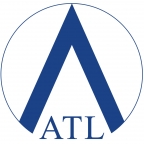Proposal writing is often a complex yet critical aspect of research and development. Check out how ECS treasurer E. Jennings (EJ) Taylor and ECS patron member Maria Inman are simplifying proposal writing for the U.S. Department of Energy’s (DOE) Small Business Innovation Research (SBIR) and Small Business Technology Transfer (STTR) applications at Faraday Technology, Inc.
 Ningde Amperex Technology Ltd. (ATL, China) is announcing a funding opportunity for researchers actively engaged in rechargeable lithium battery technologies. They are offering $100,000-$500,000 to selected projects addressing current problems associated with lithium metal anodes and proposing viable solutions for the commercialization of long-life, high-performance lithium metal secondary batteries for high energy density applications.
Ningde Amperex Technology Ltd. (ATL, China) is announcing a funding opportunity for researchers actively engaged in rechargeable lithium battery technologies. They are offering $100,000-$500,000 to selected projects addressing current problems associated with lithium metal anodes and proposing viable solutions for the commercialization of long-life, high-performance lithium metal secondary batteries for high energy density applications.
The steep demand for improved rechargeable batteries for use in consumer electronics and electric vehicles is driving the search for new battery electrode materials that will achieve higher energy densities. This funding opportunity seeks to develop scalable technologies for improving the performance of lithium metal anodes.
Please submit technical proposals along with a budget justification, confidentiality disclaimer and a cover page identifying the principle investigator, contact information, affiliations, project duration, total funding requested and submission date to Dr. KaiFu Zhong.
The deadline for submissions is July 31, 2015.
Request for Proposals
The Electrochemical Society with Toyota North America
Announces the ECS Toyota Young Investigator Fellowship
for Projects in Green Energy Technology
Proposal Submission Deadline: January 31, 2015

ECS, in partnership with the Toyota Research Institute of North America (TRINA), a division of Toyota Motor Engineering & Manufacturing North America, Inc. (TEMA), is requesting proposals from young professors and scholars pursuing innovative electrochemical research in green energy technology.
Global development of industry and technology in the 20th century, increased production of vehicles and the growing population have resulted in massive consumption of fossil fuels. Today, the automotive industry faces three challenges regarding environmental and energy issues: (1) finding a viable alternative energy source as a replacement for oil, (2) reducing CO2 emissions and (3) preventing air pollution. Although the demand for oil alternatives—such as natural gas, electricity and hydrogen—may grow, each alternative energy source has its disadvantages. Currently, oil remains the main source of automotive fuel; however, further research and development of alternative energies may bring change.
 The DOD FY 2015 Defense University Research Instrumentation Program (DURIP) BAA has been published.
The DOD FY 2015 Defense University Research Instrumentation Program (DURIP) BAA has been published.
Proposals are due 17 Nov 4:00pm ET.
This announcement seeks proposals to purchase instrumentation in support of
research in areas of interest to the DoD, including areas of research supported by the Army Research Office (ARO), the Office of Naval Research
(ONR), and the Air Force Office of Scientific Research (AFOSR).
It’s recommended that potential proposers contact the appropriate program
manager prior to submitting their proposal
Find out more.
Thanks to ECS board member Dr. Robert Mantz from the Army Research Office for the heads up.



